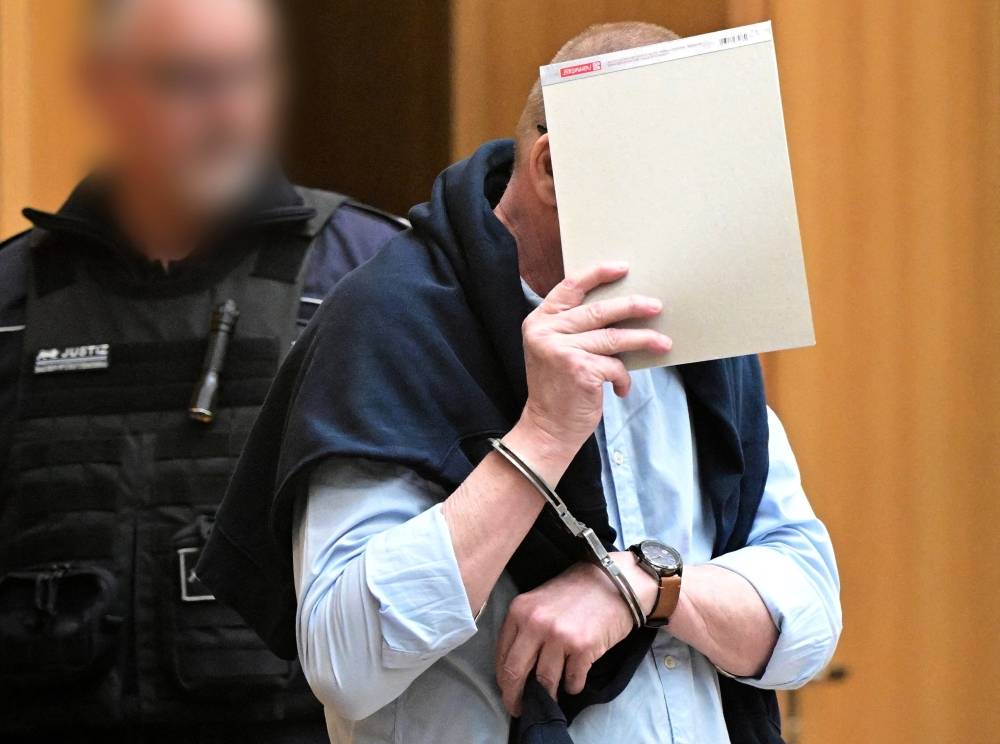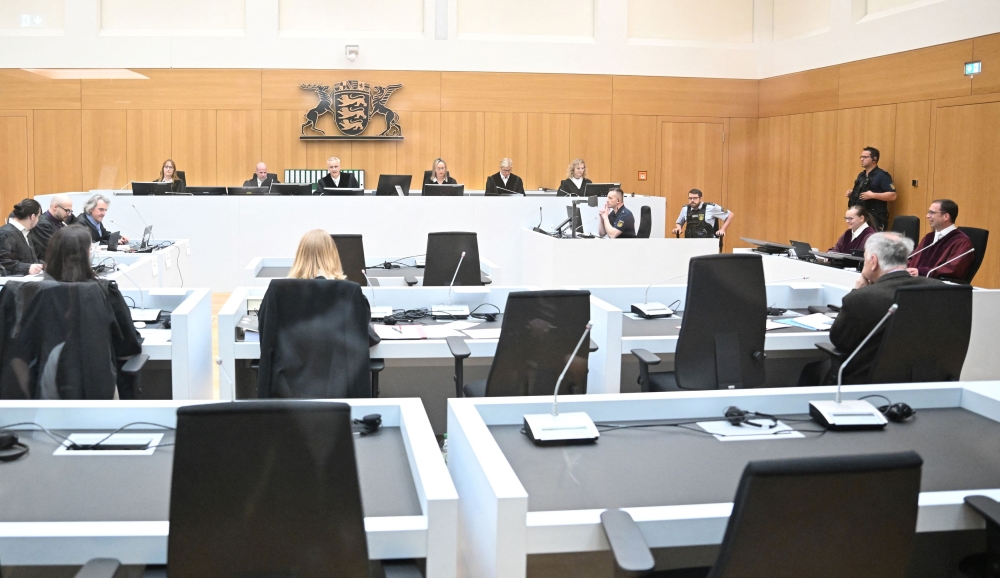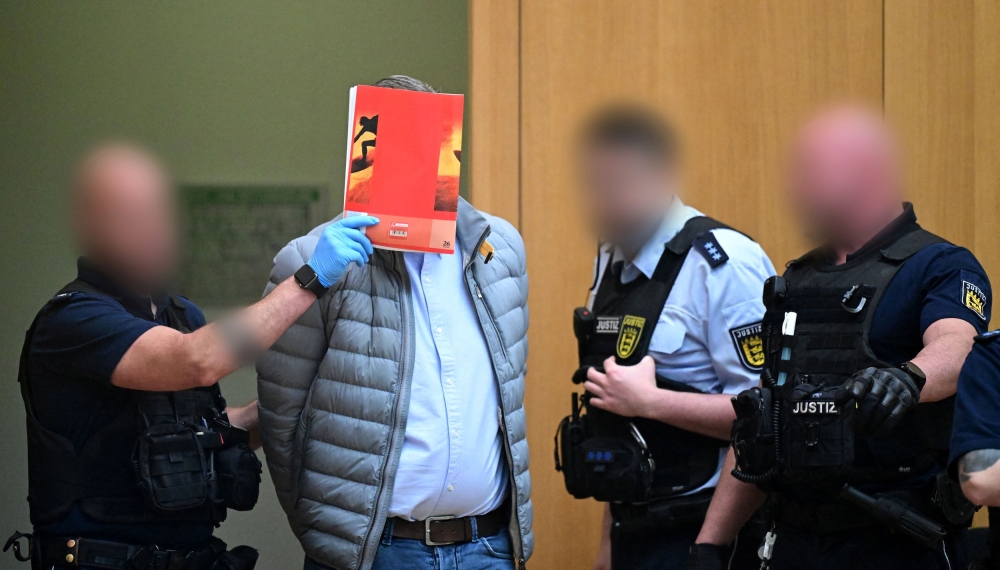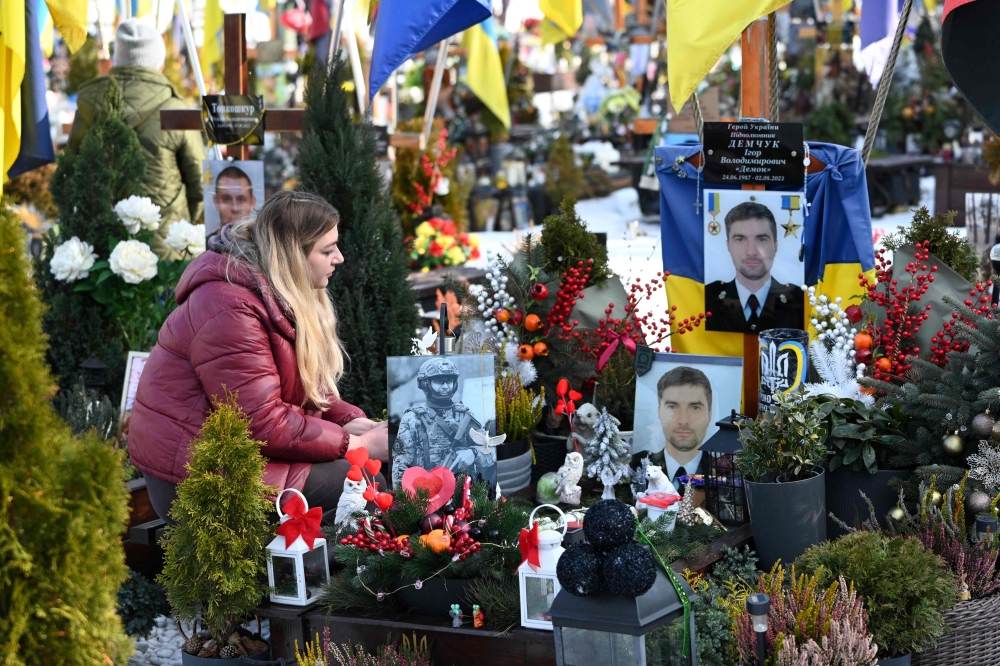STUTTGART, April 29 — Germany today put on trial nine right-wing extremists accused of plotting to attack parliament and overthrow the government, in one of the biggest post-war cases involving far-right militants.
Members of the public and journalists packed the courtroom in the southwestern city of Stuttgart as the court proceedings began 90 minutes behind schedule amid high security.
The nine men, aged between 42 and 60, were led into court handcuffed, some using court files to shield their faces from photographers.
They are among an eclectic group of more than two dozen suspects including a special forces soldier, a former far-right MP and an astrologer, who were led by minor aristocrat and businessman Prince Heinrich XIII Reuss.
Prosecutors accuse them of preparing a “treasonous undertaking” to topple the German government.
The hearings in Stuttgart were the first of three trials spanning three different courts.
The affair is the most high-profile example of far-right violence in Germany, which officials say has grown to become the country’s biggest extremist threat.
The alleged plotters are said to have taken inspiration from “conspiracy myths” including the global QAnon movement.
They also fit into the German far-right Reichsbuerger (Citizens of the Reich) scene — a group of extremists and gun enthusiasts who reject the legitimacy of the modern German republic.
The alleged putschists were convinced that Germany was ruled by a “conspiratorial sect of paedophilic elites”, prosecutors in Stuttgart said.
The ruling cabal was opposed by a secret international “Alliance”, which the group is said to have thought would rally to their aid once the coup was launched.
The plotters were likewise convinced the German population would “awaken” and support the overthrow, according to prosecutors.

‘Military arm’
Proceedings in the highly complex case, in which 26 people are to face trial, are being held under tight security.
Reuss, who was set to be installed as provisional head of state after the supposed coup, will face trial in Frankfurt in May, while a third set of proceedings will open in Munich in June.
The suspects on trial in Stuttgart are alleged to have belonged to the “military arm” of the coup plot — variously said to have been responsible for establishing, supplying and recruiting new members for “territorial defence companies”.
The forces, each with a designated area of operation, would have been responsible for seeing through the coup locally, according to prosecutors.
In the regions of Baden-Wuerttemberg and Thuringia the group’s preparations are said to have been particularly advanced, with two companies already capable of being activated when the plot was foiled.
Among the accused are a special forces soldier, identified only as Andreas M., who is said to have used his access to scout out army barracks.
Another, Marco van H. is said to have presented himself to the group as a former soldier for the “Alliance” and been appointed liaison to the fictitious organisation.
The nine also include Alexander Q., who is accused by federal prosecutors of acting as the group’s propagandist, spreading conspiracy theories via the Telegram messaging app.
Two of the defendants, Markus L. and Ralf S., are accused of weapons offences in addition to the charge of treason.
Markus L. is also accused of attempted murder for allegedly turning an assault rifle on police and injuring two officers during a raid at his address in March 2023.

Three-part trial
Police swooped in to arrest most of the group in raids across Germany in December 2022 and the charges were brought at the end of last year.
Reuss will stand trial in Frankfurt from May 21, alongside another ringleader, the ex-army officer Ruediger v.P., and a former MP for the far-right Alternative for Germany (AfD) party, Birgit Malsack-Winkemann.
The group had allegedly organised a “council” to take charge after their planned putsch, with officials warning preparations were at an advanced stage.
Long dismissed as malcontents and oddballs, believers in Reichsbuerger-type conspiracies have become increasingly radicalised in recent years and are seen as a growing security threat.
Its followers generally believe in the continued existence of the pre-World War I German Reich, or empire, under a monarchy, and several groups have declared their own states.
Such groups were driven by “hatred of our democracy”, Interior Minister Nancy Faeser said in Berlin on Sunday.
Earlier this month, police charged a new suspect in relation to another coup plot.
The plotters, frustrated with pandemic-era restrictions, planned to kidnap the German health minister, according to investigators.
Five other suspected co-conspirators in that plot went on trial in Koblenz last May. — AFP





















